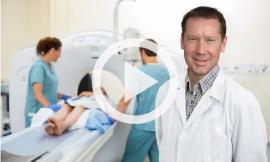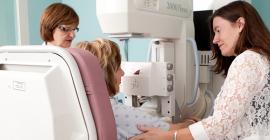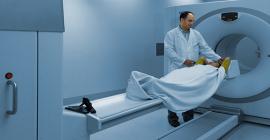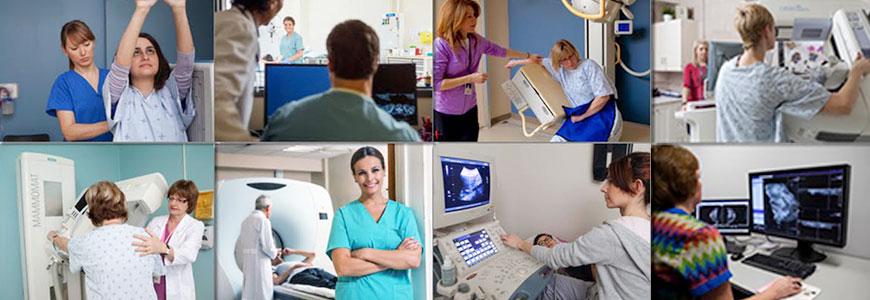
Technologists
Radiology technologists provide care to patients in hospitals and clinics
Radiology technologists produce clear and accurate images of the body that enable physicians to diagnose and treat medical conditions that would otherwise be difficult to document. Technologists operate sophisticated equipment that includes X-ray, mammography, computerized axial tomography (CAT) and positron emission tomography (PET) scan devices. By guiding patients through each step of their medical imaging procedures, these specialists ensure the production of high quality images. They also play a pivotal role in assuaging the anxieties of patients who may be concerned about the procedure or their condition.
Technologists prepare patients by explaining each step of the medical imaging process. After instructing patients to remove jewelry, clothing or other items that could interfere with the equipment, they position them correctly and protect them from overexposure, for example by covering parts of the body not being filmed with lead aprons. Occasionally they inject barium- and iodine-based contrast agents to improve image quality. After focusing the equipment and capturing the images on digital file or film, radiology technologists review the results of their work with radiologists, and take additional views when necessary. A radiology technologists may also be responsible for updating patient records and maintaining the imaging equipment itself.
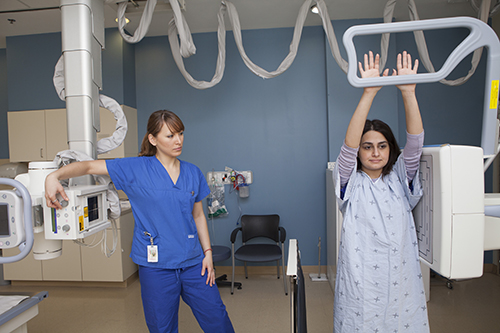
“Ontario radiologists recognize the vital partnership between radiologists and technologists. They want and need their technologists to be the best of any jurisdiction, and in many modalities.”
Radiology technologists who have progressed through continued education and training or those who acquired additional training and education before entering the field. Many radiology technologists will specialize in a particular diagnostic test, such as mammography, and those with more than one specialty are considered highly desirable by employers. Regardless of the level of training technologist—or specialization, the precision work of these professionals enables physicians to diagnose and treat a wide variety of health concerns with accuracy and confidence.

